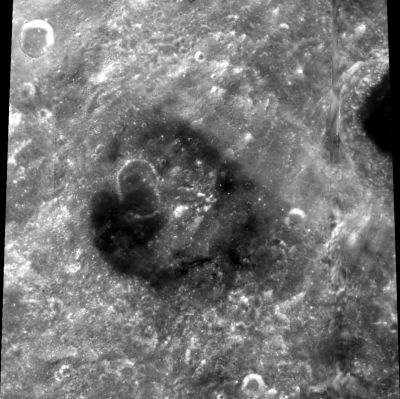Difference between revisions of "Mare Novum"
| Line 2: | Line 2: | ||
=Mare Novum= | =Mare Novum= | ||
''(discontinued [[IAU|IAU]] name)''<br /> <div id="toc"> | ''(discontinued [[IAU|IAU]] name)''<br /> <div id="toc"> | ||
| − | + | ||
| − | |||
{| class="wiki_table" | {| class="wiki_table" | ||
| Lat: 25.7°N, Long: 90°E, Diameter: km, Depth: km, Rukl: Libration Zone III (Joliot)<br /> | | Lat: 25.7°N, Long: 90°E, Diameter: km, Depth: km, Rukl: Libration Zone III (Joliot)<br /> | ||
| Line 28: | Line 27: | ||
<br /> <br /> | <br /> <br /> | ||
---- | ---- | ||
| − | + | </div> | |
Revision as of 16:37, 15 April 2018
Contents
Mare Novum
(discontinued IAU name)| Lat: 25.7°N, Long: 90°E, Diameter: km, Depth: km, Rukl: Libration Zone III (Joliot) |

Clementine The IAU name referred to the mare patches on the floor of this crater, now known as Joliot.
Images
LPOD Photo Gallery Lunar Orbiter Images
Maps
(LAC zone 46A4) USGS Digital Atlas PDF
Description
Additional Information
Nomenclature
- This discontinued IAU name is Latin for the "New Sea"
- Mare Novum was catalog entry 140a in Blagg and Müller's Named Lunar Formations, where the "a" means it is an interpolated number that did not appear in the Collated List. The feature is described as a mare "at limb" with a latitude equivalent to 25.7°N.
- The name was attributed to Franz.
- In 1961 the IAU adopted the new name Joliot-Curie for a dark limb feature photographed by Luna-3, even though some scientists suspected it was the same as the IAU's earlier Mare Novum.
- As part of the changes introduced in the Rectified Lunar Atlas and System of Lunar Craters accepted by the IAU in 1964, Arthur suggested redefining the name Joliot-Curie (presently Joliot) to mean the 143 km diameter crater containing Luna-3's Joliot-Curie and the IAU's former Mare Novum on its floor.
LPOD Articles
Bibliography